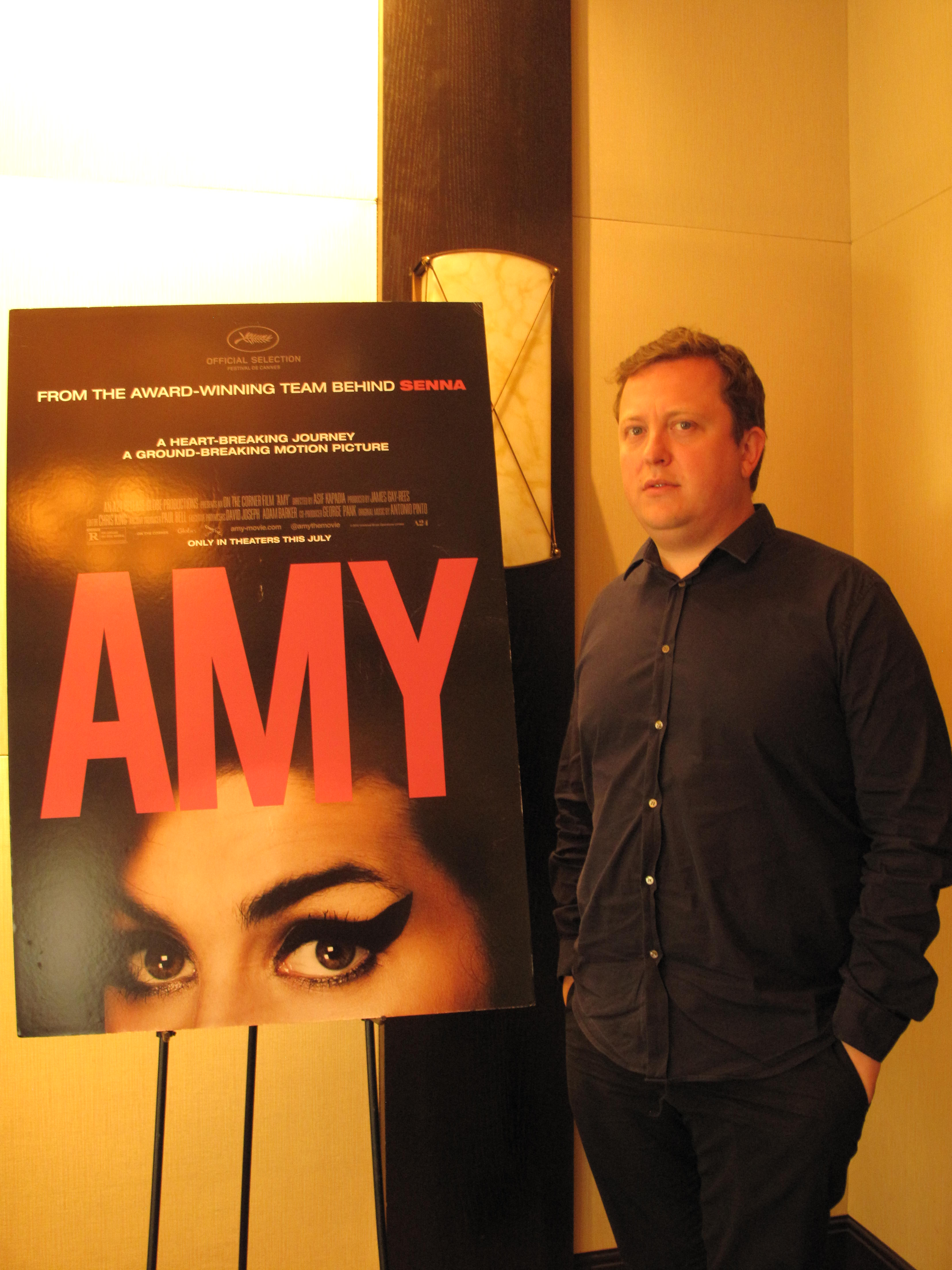By Liz Lopez
Review and Interview with Nick Shymansky
Rating: A
I am a huge fan of diverse genres and styles of music and living in Austin, it is easy to attend and often. It is a real treat for me to review films that feature music as the main topic. More specifically, the music documentary provides a good learning opportunity, not only about the music, but the musicians as well. As I viewed the feature documentary, Amy, from BAFTA Award-winning director Asif Kapadia (Senna), it did not make me emotional to the point of drawing tears, but it induced sadness and even more compassion for the loss of her life and talent. The filmmakers excelled in providing more insight as to who Amy Winehouse was way before the world saw and heard her on the very public stage. The use of unseen archival footage at times may lull fans into feeling as if she is still with us. It is when the realities of her life and habits are shown to the viewer in this footage that we are brought right back to the day that Amy left this world four years ago this month.
It might be easy for some people to make remarks about the six-time Grammy-winner based on what the media focused on and what made it into the tabloids. Kapadia, James Gay-Rees (producer) and Chris King (editor) have created a film that tells the singer-songwriter’s personal story and how it came through in the poetry she wrote as a teen and also in the lyrics she created. I learned so much more about her music influences and jazz artistry. It is even more awesome that as I write this now, an Amy Winehouse song is playing from the speaker above.
We learn in the film that Nick Shymansky was Amy’s first manager. For this film, he contributed footage and insight about a young artist with a wealth of talent from a young age. He was in Austin for a promotional tour of the documentary that opens in theaters nationwide on July 10th and I had the opportunity to talk with him about the film and his experiences.
As we started our conversation, I extended my condolences to him for the loss of his friend. “The whole thing is surreal, strange.” he said, adding “strange to be doing interviews.” He glanced over to the film poster, his face clearly reflecting emotion as he added he felt as if she is staring at him. As we started to discuss the film, he described it as the “right film” and “powerful.” He added, “It is why I am here, but it does not make it any less bizarre.”
We talked about losing someone who you are close to for many years and for some of us, extending back to our youth. “I was 19 – she was 16 – and she died when I was 31. It was quite a long time, 12 years. It was a very important time in our life. She was a kid. I’m lucky I got the better years when she was happy and excited. I couldn’t have been around her in the dark years. Anyone who could (be around her), had to have been disconnected with her as a person.”
As he kept thinking about it, looking away out the window he was facing, he added, “I think most people who met her from 2006 onward weren’t meeting Amy. She was either drunk, high and in a bad space.”
I asked him what he would you want for people to “take away” from the film after viewing it and he said there are two things. “First, hopefully, the masses will come to discover her meaningfully” as opposed to what “the tabloids and media” said she was. “It is not who she was,” he added, stating the photos often were “unflattering, with teeth missing and looking ill. I want to reestablish in people’s minds who she was.”
He continued to the second item, citing it is very important – the issues of mental health and depression. “Depression is personal,” and added, “when in it, people go to alcohol and drugs. Not everyone has a strong core” and she didn’t he said. “It was a five year downward spiral” for Amy, as he stared away. “No one ever came out asking if this was a publicity stunt. No one asked what’s wrong.”
Then our conversation flowed to Amy’s music and the popular song “Rehab” that Amy had written, as well as the lyrics in pop music. “The word ‘rehab’ means rehabilitation,” stated Nick, “but it could also be argued if a kid is hearing it, they are thinking, ‘I’m fine, I just got drunk, I’m fine,’ but she was not. People were wrong about it. I never wanted to be so wrong about something.” I asked him to clarify his participation in seeking help for her and he stated, “I intervened to get her help, before she became a super star. She agreed, but she wanted her father to back it. It is a real shame. (You) can be so powerful as a parent.”
Photos taken by Liz Lopez

